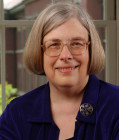ON UNIVERSITY OBLIGATIONS TO SUPPORT FREEDOM OF DISCUSSION, RESEARCH, AND TEACHING
From participants in the Scholars Strategy Network
March 2022
The Scholars Strategy Network is a nationwide voluntary association of publicly engaged scholars from many disciplines working at universities and colleges across the United States. As leaders and active participants in this group, we are deeply concerned about growing threats from various directions to free, honest, and open discussion of facts and values within universities and in the larger civil society. Our network is committed to ideals of free speech and mutually respectful yet forthright discussion of important questions. As academics, we hold that universities should enable unrestrained expression of different points of view on questions of fact and value. We believe that college and university leaders, researchers, and teachers should join with other institutional leaders to preserve and protect such freedoms throughout American academic and civic life.
Colleges and universities have an obligation as part of their fundamental mission to advance understandings of the importance of free discussions to any democratic society. Passed down from generation to generation, democratic values and the institutional practices that support and flow from them, must be safeguarded. They cannot be taken for granted. We urge that college and university leaders take steps – from student orientation to coursework to special events – to explain the valuable place that rigorous research and open discussion occupy in a healthy civil society, as well as their centrality to accountable governance and to an efficient, fair economy. Leaders in academia should be equally clear about past, present, and potential threats to such ideals. Beyond this foundational groundwork, universities should regard different points of view and truth claims as expected elements of rigorous intellectual inquiry and effective teaching – differences that neither require nor justify censorship or self-censorship. This principle applies universally, including to community members who have not enjoyed full membership in the past and to those who espouse minority points of view.
Specifically, these are the core principles we stand behind and call upon all members of universities and colleges to sustain:
- University members should champion freedom to conduct scholarly research and share results. Universities have an obligation to ensure that a full range of hypotheses and questions – even on topics that are unorthodox, uncomfortable, or challenging to partisan ideologies or majority views – can be investigated by researchers of all ranks. Furthermore, university authorities should defend the rights of researchers to make public contributions drawn from their scholarship – for example by presenting expert findings and arguments in courtrooms, legislative testimony, public reports, and contributions to civic forums. Whether pressures to violate these standards come from inside their institutions or from external actors such as advocacy groups, legislators, or members of governing boards, university leaders must stand firm in pushing back in the name of core principles.
- A university education should equip students to hear, understand, and respond vigorously to fully contextualized arguments, including those they may find deeply offensive. Teachers have an obligation to foster honest and respectful discussions of all pertinent issues in their classrooms and other academic settings. Although teachers can and should structure lessons in many different ways, they should always strive to establish and maintain an atmosphere of mutual respect and open-mindedness that welcomes all students to express their views and raise questions.
- As centers of intellectual engagement and civic debate, colleges and universities must permit a range of voices and arguments to be heard. They should develop and adhere to consistent policies governing outside speakers on campus. Groups and individuals external to the university do not have rights to make presentations on campuses except when invited in accordance with standing university policies (which vary according to institutional missions and state laws). However, external speakers invited under university guidelines should enjoy the right to speak in a setting the university deems appropriate. If either a speaker’s background or the argument or material presented is considered controversial by some in the university, authorities should ensure that counter-arguments can be aired and non-disruptive public protests can be staged. The overall aim should be to allow students and others within and beyond the university to hear the speaker and listen to or present arguments in response.
Inaugural SSN Signatories (institutional affiliations for Identification only):
Theda Skocpol
Director of the Scholars Strategy Network
Victor S. Thomas Professor of Government and Sociology
Harvard University
Amy Binder
Professor of Sociology
University of California, San Diego
James M. Curry
Associate Professor of Political Science
University of Utah
Amy Fried
John Mitchell Nickerson Professor of Political Science
University of Maine
Ellen Fitzpatrick
Presidential Professor of History
University of New Hampshire
Darrick Hamilton
Henry Cohen Professor of Economics and Urban Policy
University Professor
Director, Institute on Race, Power, and Political Economy
The New School
Lawrence R. Jacobs
McKnight Presidential Chair
Walter F. and Joan Mondale Chair for Political Studies and Governance
Hubert H. Humphrey School
University of Minnesota
Nathan J. Kelly
Professor of Political Science
University of Tennessee
Suzanne Mettler
John L. Senior Professor of American Institutions
Department of Government
Cornell University
Sarah Reckhow
Associate Professor of Political Science
Michigan State University
Barbara J. Risman
College of Liberal Arts & Sciences Distinguished Professor
Professor, Department of Sociology
University of Illinois at Chicago
Deondra Rose
Associate Professor of Public Policy, Political Science, and History
Sanford School for Public Policy
Duke University
